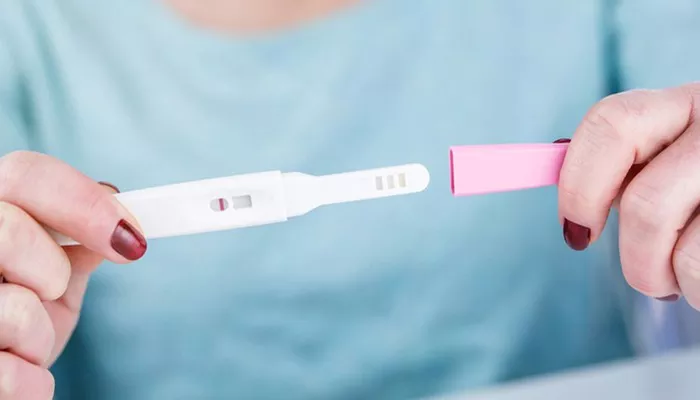Understanding pregnancy detection is vital for many individuals. The serum human chorionic gonadotropin (hCG) test is a key method used to confirm pregnancy. This article provides a detailed overview of how soon serum hCG can detect pregnancy, including its functioning, timing, and factors that influence detection.
What is Serum HCG?
Definition of HCG
Human chorionic gonadotropin (hCG) is a hormone produced during pregnancy. It is primarily secreted by the placenta shortly after a fertilized egg attaches to the uterine lining.
Role of HCG in Pregnancy
hCG plays a crucial role in maintaining pregnancy. It supports the corpus luteum, ensuring the production of progesterone. This hormone is essential for keeping the uterine lining thick and ready to support a developing embryo.
SEE ALSO: How Early Pregnancy Test Can Detect HCG?
Understanding Pregnancy Tests
Types of Pregnancy Tests
Urine Tests
Commonly used at home.
Measure hCG levels in urine.
Can give results a few days after a missed period.
Serum Tests
Conducted in a clinical setting.
Measure hCG levels in the blood.
More sensitive than urine tests.
Serum vs. Urine Tests
Serum tests can detect lower levels of hCG compared to urine tests. They can confirm pregnancy earlier due to their sensitivity.
Timing of Serum HCG Detection
When to Take the Test
Serum hCG tests can typically detect pregnancy as early as 6 to 8 days after ovulation. This is about one week before a missed period.
Early Pregnancy Detection
Days Post-Ovulation
hCG is usually detectable in serum about 7-12 days after fertilization.
The timing depends on when implantation occurs.
Importance of Timing
Testing too early may yield a false negative result.
Waiting until a missed period can provide more accurate results.
Factors Influencing Detection
Individual Variability
Ovulation Timing
Variability in ovulation can affect when hCG levels rise.
Tracking ovulation can help predict the best time to test.
Implantation Timing
Implantation usually occurs 6-10 days post-ovulation.
Variability in implantation affects when hCG levels increase.
Sensitivity of the Test
Test Sensitivity
Different serum tests have varying sensitivities.
More sensitive tests can detect lower hCG levels.
HCG Levels Over Time
After implantation, hCG levels double approximately every 48 to 72 hours.
Tracking hCG levels can provide insight into the progression of pregnancy.
How Serum HCG Levels Change
Normal HCG Levels in Early Pregnancy
Initial Levels
Normal ranges for hCG in early pregnancy can vary.
Initial levels can be as low as 5 mIU/mL.
Doubling Rate
Healthy pregnancies usually show a doubling of hCG levels within 48-72 hours.
Slower increases may indicate potential issues.
Monitoring HCG Levels
Follow-Up Testing
Repeat serum tests can help confirm a viable pregnancy.
Doctors may order multiple tests to monitor levels.
Interpreting Results
Rising levels indicate a progressing pregnancy.
Falling or plateauing levels may warrant further investigation.
Importance of Accurate Testing
Role of Healthcare Providers
Consulting a Healthcare Provider
It’s essential to consult with a healthcare provider for accurate testing.
Providers can offer guidance on when to test and interpret results.
Avoiding Misinterpretation
Misunderstanding hCG levels can lead to anxiety.
Clear communication with healthcare providers can alleviate concerns.
Emotional Impact of Testing
Anxiety and Uncertainty
Early pregnancy testing can cause anxiety.
Understanding the process can help manage expectations.
Support Systems
Having a support system during this time is crucial.
Discussing feelings and concerns with friends or family can be beneficial.
Conclusion
Serum hCG testing is a reliable method for detecting pregnancy. Understanding when and how this test works can provide clarity and assurance during early pregnancy. For accurate results, timing is key, and consulting with a healthcare provider can enhance the experience. With proper knowledge and support, individuals can navigate the early stages of pregnancy with confidence.
By being informed about serum hCG detection, individuals can make empowered decisions about their reproductive health.
FAQs
Which Tests Detect hCG Earliest?
The serum hCG test detects pregnancy earlier than urine tests. A serum test can identify hCG levels about 6 to 8 days after ovulation, which is approximately 1 week before a missed period. This is because serum tests are more sensitive and can detect lower levels of the hormone compared to home urine tests.
How Many Weeks Pregnant Am I at hCG Level?
To estimate how many weeks pregnant you are based on hCG levels, consider the following approximate ranges:
5 to 50 mIU/mL: 3 weeks
18 to 7,340 mIU/mL: 4 weeks
1,080 to 56,500 mIU/mL: 5 weeks
7,650 to 229,000 mIU/mL: 6 weeks
These levels can vary significantly between individuals. It’s important to consult a healthcare provider for accurate dating and to monitor hCG levels over time for a clearer understanding of pregnancy progression.
When Does hCG First Appear in Pregnancy?
hCG first appears in the bloodstream shortly after implantation. This typically occurs 6 to 12 days after fertilization. Most individuals can detect hCG around 7 to 12 days post-ovulation with a serum test. This timing is critical, as testing too early may result in a false negative due to low hormone levels.
You Might Be Interested In


